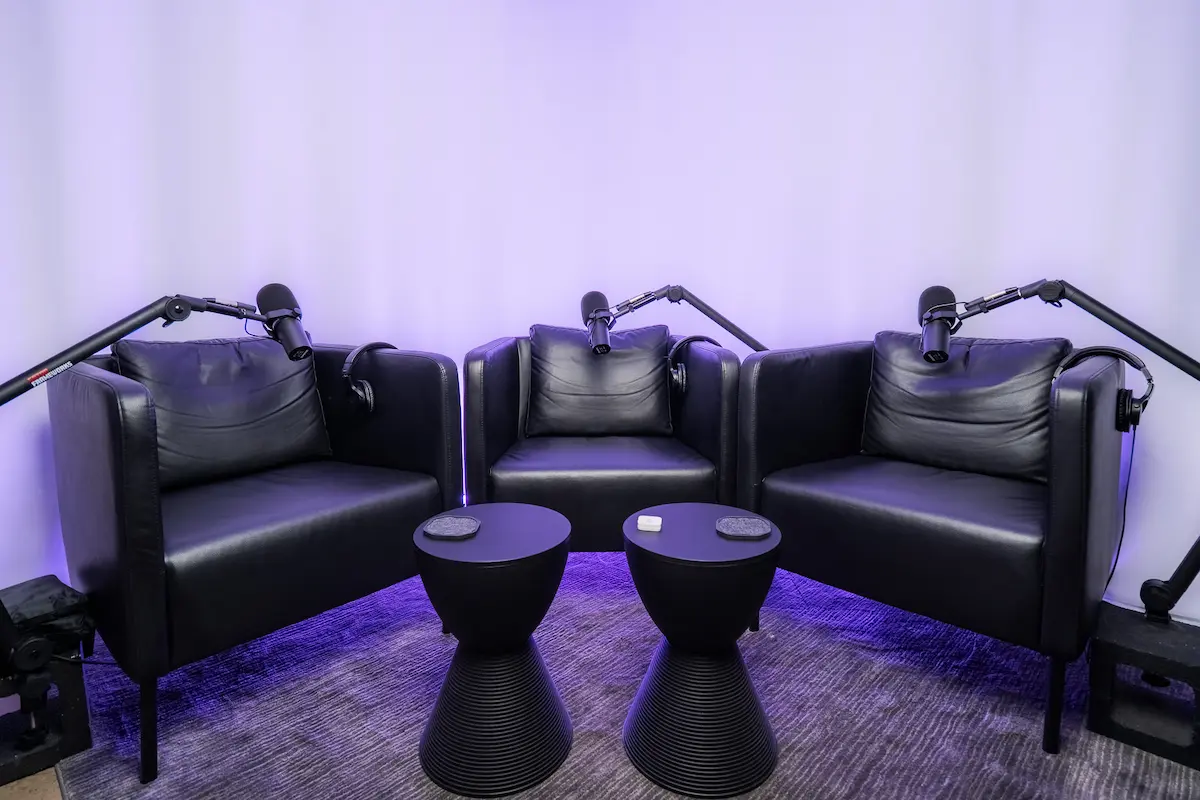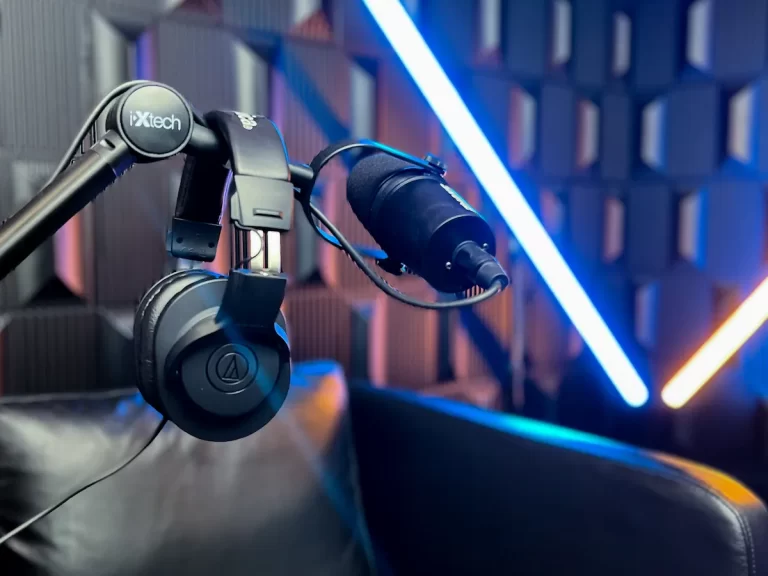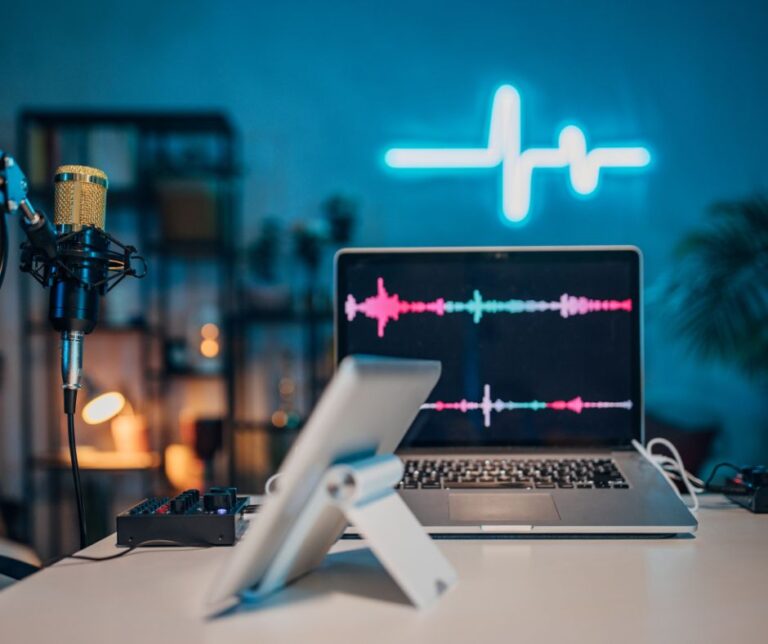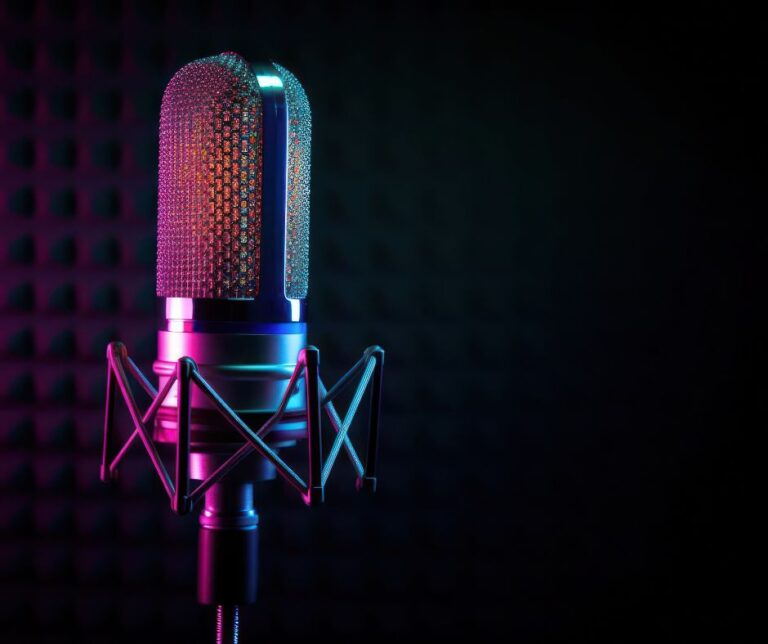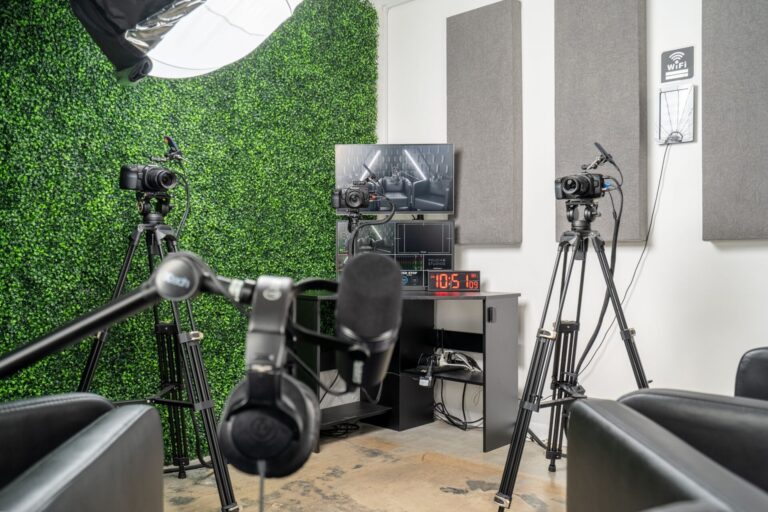Podcast Starter Kit: Unveiling the Essentials [Beginners Guide]
Podcasting is all about creating and sharing awesome audio content in a digital format that you can subscribe to and download onto your devices. You’ll find everything from interviews, stories, educational stuff, and any topic you’re into.
The name “podcast” comes from “iPod” and “broadcast”, but you can enjoy podcasts on any digital gadget.
Podcasts have exploded in popularity lately, and it’s not hard to see why. You can listen whenever and wherever you want, thanks to the on-demand nature of podcasts.
Plus, there’s a podcast for everyone! Whether you’re into business, science, comedy, or personal growth, you’ll find something that suits your interests. It’s all thanks to the magic of the internet and cool technologies that make it so easy to find and enjoy awesome podcasts.
This guide will be your podcaster starter kit. Here, you’ll learn all the basics, including the essentials you must have before getting started. Read on!
Essential Equipment
The first essential piece of podcasting equipment is a microphone. A quality microphone captures your voice in high detail, ensuring your listeners can hear your thoughts and ideas clearly.
There are various types of microphones, but USB and XLR microphones are the most popular choices for podcasting due to their ease of use and excellent sound quality.
Next, headphones are crucial. A reliable pair of closed-back headphones provides clear sound and prevents any noise bleed.
They allow you to monitor your audio in real-time, ensuring you catch and correct any issues during the recording process, not in post-production when it might be too late.
Lastly, mixing boards or audio interfaces are a significant component. A mixing board allows you to manage and adjust your audio levels on the fly, granting you greater control over your podcast’s sound quality.
Their fundamental purpose is to take the signal from your microphone, process it, and then send it to your headphones and computer. A good mixing board can help even a beginner sound like a podcast pro.
Recording Software
When it comes to choosing recording software for your podcast, there are a few important decisions to make.
First off, you’ll need to decide between free and premium options. Free software usually offers basic recording capabilities, while premium options can give you advanced features like noise reduction, multi-track editing, and high-quality sound effects.
These are super important if you’re looking to create a polished, professional podcast.
Next, let’s talk about the software’s interface. It’s gotta be user-friendly! You’ll be spending a lot of time using it, so it’s crucial that it’s intuitive and easy to navigate.
Some software even comes with helpful tutorials and customer support, which can be a real lifesaver, especially if you’re just starting out.
And lastly, if you’re a pro podcaster, you’ll want to consider those advanced features. Things like detailed editing capabilities, high-quality sound effects, and the ability to record multiple tracks at once. These features give you more control and precision, and can really take your podcast to the next level.
Perfecting Your Podcast Audio
Editing Tips and Tricks
When it comes to podcasting, audio editing plays a big role in creating a professional and polished end product. First things first, get rid of any unnecessary sounds or long silences that might interrupt the flow of your content.
Use user-friendly software like Audacity or Adobe Audition, which have powerful editing features. Don’t be afraid to use editing tools to adjust volume levels or balance sound across different segments.
Enhancing Sound Quality
Sound quality is super important in podcasting. Start by investing in a good quality microphone and consider using pop filters to reduce unwanted noise. Record in a quiet space without echoes, and use headphones to monitor your audio.
You can also make some post-production magic happen by using noise reduction or equalization to greatly improve your audio quality.
Avoiding Common Pitfalls
To avoid common audio issues, it is crucial to plan ahead and take necessary precautions. Before recording, conduct sound checks to ensure optimal sound quality. Pay attention to potential background noises such as air conditioners or street traffic that could distract listeners from your podcast.
In addition, it is important to find the right balance in your speaking pace. Avoid speaking too fast or too slow, as a steady and natural pace is key to keeping your audience engaged throughout the podcast. Remember, a well-paced and engaging delivery enhances the overall content.
Last but not least, don’t forget to save and back up your recordings. This simple step can prevent the loss of your hard work and ensure that your precious recordings are secure.
By following these guidelines, you can navigate common pitfalls and create a high-quality podcast experience for your listeners.
Branding Your Podcast
Branding your podcast is crucial to making it stand out in the crowded podcast marketplace.
First things first: your logo. It’s often the first thing a potential listener will see. Therefore, it’s essential that it’s not only visually appealing but also encapsulates the essence of your podcast.
An effective logo should be clean, easy to recognize even at a small size, and visually convey your podcast’s topic or theme.
Additionally, a catchy and meaningful tagline can make your podcast more memorable. This brief, impactful statement should encapsulate your podcast’s mission or the value you’re offering to your listeners.
A great tagline can intrigue new listeners and give existing ones a quick way to explain to others what your podcast is about.
Lastly, a consistent theme is integral to brand cohesiveness. This goes beyond just the visual elements and includes the tone and style of your content, the type of language used, and the topics covered.
Consistency in these areas helps to develop a strong brand identity, making your podcast instantly recognizable to your audience.
Hosting and Publishing Platforms
Podcasts require a hosting platform to store and distribute the audio files. These platforms differ in pricing, performance, storage capacity, and additional features.
Comparing hosting services is essential to finding a solution that matches your podcast’s needs and budget.
After creating your podcast, the next step is to make it accessible to your audience. Submitting your podcast to directories like Apple Podcasts, Spotify, and Google Podcasts exposes it to a wider audience, increasing your potential listenership.
RSS (Really Simple Syndication) feeds are fundamental to podcasting. They allow your audience to subscribe to your podcast. Every time you publish a new episode, it’s automatically sent via your RSS feed to your subscribers and podcast directories.
Therefore, understanding how RSS feeds work helps you ensure your content promptly reaches your audience.
Building a Strong Online Presence
Building a strong online presence is a crucial part of your podcasting journey.
First things first, your podcast needs a home base, a place where your audience can find more about your show, check out past episodes, and get in touch with you.
Having a website gives you complete control over your podcast brand and helps you come across as more professional. Plus, it’s the perfect spot for show notes, blog posts, and other content that complements your podcast.
On top of that, social media platforms like Twitter, Facebook, Instagram, and LinkedIn are powerful tools to promote your podcast.
You can regularly share episode updates, behind-the-scenes photos, and interact with your audience to build a strong, engaged listener community. And hey, these platforms even offer advertising options to reach an even bigger audience.
Last but not least, an email list allows you to communicate directly with your audience. You can share updates, exclusive content, or personal messages to foster a deeper connection.
Plus, it’s a reliable way to let your subscribers know about new episodes or important announcements, without being affected by algorithmic changes on social media.
Email marketing tools also provide analytics to help you better understand your audience’s behaviors and preferences.
Trends in Podcasting
Technology is always evolving, and this rapid change is significantly impacting the podcasting landscape.
Exciting advancements, such as immersive audio that engulfs listeners in a lifelike experience and smart speakers that facilitate seamless podcast consumption at home, are revolutionizing the creation and enjoyment of podcasts.
As podcasts continue to gain popularity, there is a growing demand for a diverse range of content. Whether it’s true crime and investigative journalism that captivates listeners or wellness and personal growth podcasts that inspire self-improvement, people are seeking shows that cater to their specific interests and offer unique perspectives.
Moreover, the podcasting industry itself is undergoing a transformation. Innovative monetization strategies like premium subscriptions and crowdfunding are paving the way for podcasters to monetize their content effectively.
Additionally, with the availability of user-friendly recording and editing software, individuals from all walks of life now have the opportunity to embark on their podcasting journey and amplify their voices.
These ongoing developments in technology, content variety, and monetization avenues are shaping the future of podcasting, making it an exciting time for both creators and listeners alike.
Summary
In conclusion, embarking on a podcasting journey requires essential equipment like a quality microphone, headphones, and sound editing software. Content creation and a strategic promotional plan are equally as crucial to gain traction among listeners.
To all aspiring podcasters, remember that every professional was once a beginner. Don’t be disheartened if you don’t achieve instant success.
Consistency, creativity, and a genuine passion for your topic are the secret ingredients to a successful podcast. Everyone has a unique story or perspective to share – and podcasting is your platform to share yours and make your voice heard. Keep podcasting!

